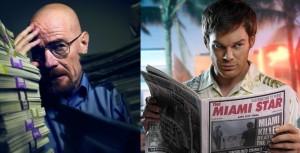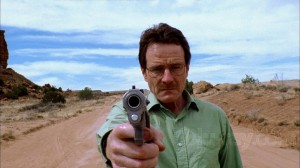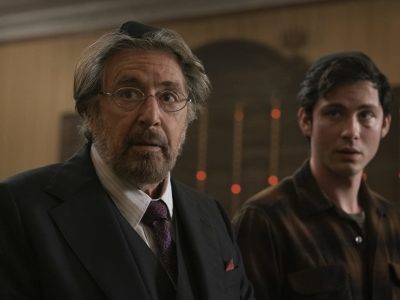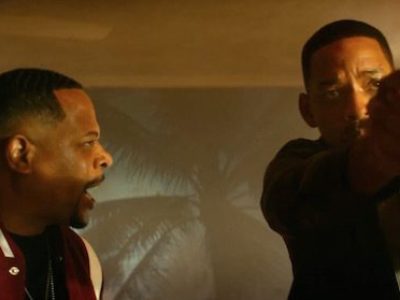Playing With Depravity: Breaking Bad & Dexter
As the Christmas season draws to a close and everyone makes their last minute purchases, one of the most popular gifts likely to be under many trees is a TV series box set of two recently ended series. This past September gave us the finales of both Breaking Bad and Dexter, two shows that have permeated the cultural climate for the past decade. These shows have been fervently followed by millions of fans, myself included, and the almost identical nature of the two shows gives us a small yet apt view of the type of entertainment that so many are drawn to. The popularity of Dexter and Breaking Bad, shows that focus solely on the dealings of a criminal anti-hero and the consequences of their actions on the world around them, illustrates that on-screen depravity is a hot seller.
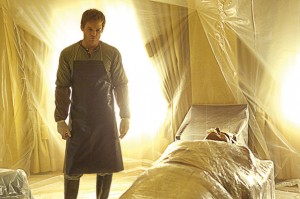 The basic story points (spoiler free) are thus: Dexter Morgan is a serial killer with a conscience- following a code that allows him to determine who he can justifiably kill to satiate his need to do so. Thus, the series probes the issues of justifiable killing, vigilantism, and it’s effects on society and the people in Dexter’s life.
The basic story points (spoiler free) are thus: Dexter Morgan is a serial killer with a conscience- following a code that allows him to determine who he can justifiably kill to satiate his need to do so. Thus, the series probes the issues of justifiable killing, vigilantism, and it’s effects on society and the people in Dexter’s life.
Walter White is a high school chemistry teacher with cancer who takes his brilliant knowledge of chemistry and uses it to cook meth in order to pay for his treatment and build a nest egg for his family. The show examines the difficult decisions he must make to avoid capture and maintain his routine family dynamic, and in turn also explores where a life of drug dealing takes Walter and the people in his life.
These shows are echoes of similar lives and choices made, and they are both a fascinating study. They fully explore the material they present, and do so through powerful performances and at times brilliant cinematography. But their reverberation in our culture is perhaps even more fascinating.
I remember when Dexter first arrived on the scene. There was some jaw dropping at the concept. A show being centered around a mass murderer was met with a certain amount of shock, even in a TV climate experiencing the end of one of the most successful shows ever- The Sopranos- which followed a mafia don and his family. Dexter had a very dark humor to it when it began, and the very audacity of the concept helped draw viewers in immediately.
After all, when it comes to entertainment we are like rubber-neckers, slowing down our cars to gaze at the accident on the highway.
Now that we are at the end of Dexter and Breaking Bad, the climate is a bit different. It seems that more and more frequently we are rooting for the instigator, the killer, the destructor, going so far as to call them our heroes. We wear them on our t-shirts and quote them in our conversations.
I will be the first to admit- these stories make for very good TV. But is celebrating the Dexters and Walter Whites good?
The blurry lines presented in each series do complicate the argument. But good and evil are both clearly on display in these shows. The filmmakers are not glorifying killing, despite some arguments to the contrary, and the consequences are real and lasting. Yet as we watch on the edge of our seat for what will happen next, we are rooting for the violence and the crime to continue. We want Dexter to kill the other killers. We want Walter White’s drug business to make him all the money we think he deserves. And we don’t want the cops or “good guys” to find out about it.
This isn’t a new concept in story telling by any means. The idea of an anti-hero is more of a modern version of the tragic hero that has origins all the way back to greek tragedies. Shades of these characters exist throughout history, from Shakespeare’s Macbeth to Scorcese’s Taxi Driver.
But as these types of characters grow more prevalent in our current entertainment landscape, it seems that being good is simply not good enough anymore. After all, our modern on-screen heroes don’t simply win in the end. They have to suffer, and even their victories must be littered with defeat. Certainly these shades of gray in our characters do paint a more acurate picture of real life, and I am not arguing it should be different. But it is an interesting shift to note that in our entertainment, good vs evil has become boring. In fact, it has often been replaced with stories about evil merely existing.
“The heart is deceitful above all things, and desperately sick; who can understand it?” – Jeremiah 17:9
The Bible is full of verses that illustrate the depravity of man. We are all capable of becoming a Dexter or Walter White if the desires of our hearts go unchecked. This is without doubt part of the draw of these shows. The heart is a complex study to say the least. And to watch the implications of evil play out can be great entertainment. Much like violent video games, the viewer momentarily experiences the other side of the line we choose not to cross in the real world.
 Yet how much thinner does the line become when we wear the blood of a Dexter victim on our t-shirts, or eat candy meant to resemble the bright blue crystal meth created by Walter? I suppose it really isn’t much different than firing a plastic toy gun playfully at another person. We pull the trigger because it has no consequence that it otherwise would have if the gun were real. Perhaps we celebrate the actions of these characters and play pretend with them for the same reason. There is nothing inherently wrong with pretending, but divorcing ourselves from the effects that these characters actions have can be a dangerous place to stay. If we play with the depravity (sans the consequences) for too long, will the depravity start to play with us?
Yet how much thinner does the line become when we wear the blood of a Dexter victim on our t-shirts, or eat candy meant to resemble the bright blue crystal meth created by Walter? I suppose it really isn’t much different than firing a plastic toy gun playfully at another person. We pull the trigger because it has no consequence that it otherwise would have if the gun were real. Perhaps we celebrate the actions of these characters and play pretend with them for the same reason. There is nothing inherently wrong with pretending, but divorcing ourselves from the effects that these characters actions have can be a dangerous place to stay. If we play with the depravity (sans the consequences) for too long, will the depravity start to play with us?
There really isn’t a simple answer. And of course, this debate has been ongoing for a long time. Nevertheless, to admire the Dexters and the Breaking Bads as art is very important. These are intricate portraits that should be looked upon and studied, caught up in and yes, even riveted by the drama that they bring. But how far beyond the screen should it cross over into our landscape? Why are we more often worshipping the Walter Whites instead of condemning their actions, or using them as an example of the effects of evil?
Both of these shows do a good job, Breaking Bad especially, of letting the consequences come to fruition. Lives are scattered and often lost, families are broken, and the world is upended when evil abounds. And perhaps most pointedly, what is right versus what is wrong becomes blurry, and we are left with what is good versus what is evil. Therefore we are not allowed to view Dexter or Walter White through the eyes of a religious system that tells us what we should and should not do. Rules are often tossed out the window. Instead, it becomes a more unifying experience, as no matter what the viewer personally believes, we are all forced to wade into and experience the capabilities of our natures. We then see what becomes of a heart that does not (or cannot) reflect the goodness of God.
It is an often scary picture, but with both of these shows, it is an entertaining one. Just not really one I want to wear as a fashion statement.
“If religion is a reaction of man, and nothing more, it seems to me that it represents a human desire for wrongdoers to be punished. I hate the idea of Idi Amin living in Saudi Arabia for the last 25 years of his life. That galls me to no end. I feel some sort of need for Biblical atonement, or justice, or something. I like to believe there is some comeuppance, that karma kicks in at some point, even if it takes years or decades to happen. My girlfriend says this great thing that’s become my philosophy as well. I want to believe there’s a heaven. But I can’t not believe there’s a hell.” – Vince Gilligan, Writer/ Creator of Breaking Bad



